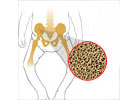
Blood homocysteine levels are positively associated with cardiovascular disease, but it is uncertain whether the association is causal.
A meta-analysis of prospective studies indicated that, after adjustment for known risk factors, a 25 percent lower than usual homocysteine concentration was associated with an 11 percent lower risk of coronary heart disease and 19 percent lower risk of stroke.
"Daily supplementation with folic acid typically lowers homocysteine levels by about 25 percent, and the addition of vitamin B12 lowers it by a further 7 percent," wrote the authors.
Other research has suggested supplementation with folic acid may offer a protective effect against stroke.
Dr. Jane M. Armitage, of the University of Oxford, United Kingdom, and colleagues assessed the effects of lowering homocysteine levels with folic acid plus vitamin B12 in 12,064 survivors of myocardial infarction (heart attack) in secondary care hospitals in the United Kingdom between 1998 and 2008.
Advertisement
The primary outcomes measured included first major vascular event, defined as major coronary event (coronary death, heart attack, or coronary revascularization), fatal or nonfatal stroke, or noncoronary revascularization.
Advertisement
During 6.7 years of follow-up, major vascular events occurred in 1,537 of 6,033 participants (25.5 percent) allocated folic acid plus vitamin B12 vs. 1,493 of 6,031 participants (24.8 percent) allocated placebo.
"There was no evidence of any benefit beginning to emerge with more prolonged treatment and follow-up," wrote the authors.
Receipt of study vitamins also was not associated with a significant effect on any stroke (vitamins, 4.5 percent vs. placebo, 4.4 percent); noncoronary revascularizations (vitamins, 3.0 percent vs. placebo, 2.5 percent); or major coronary events (vitamins, 20.4 percent vs. placebo, 19.6 percent).
There were no apparent differences in the numbers of deaths attributed to vascular causes or nonvascular causes.
New primary cancers (excluding non-melanoma skin cancer) were diagnosed in 11.2 percent of the participants allocated folic acid plus vitamin B12 vs. 10.6 percent allocated placebo, with this difference not being significant.
"Taken together with the previous homocysteine-lowering trials, the results of SEARCH indicate that folic acid supplementation has no significant adverse effects on cancer or other major health outcomes, even if it also produces no beneficial effects on cardiovascular disease. In addition, these results highlight the importance of focusing on drug treatments (e.g., aspirin, statins, and antihypertensive therapy) and lifestyle changes (in particular, stopping smoking and avoiding excessive weight gain) that are of proven benefit, rather than lowering homocysteine with folic acid-based vitamin supplements, for the prevention of cardiovascular disease," concluded the authors.
The study has been published in the latest issue of JAMA.
Source-ANI















